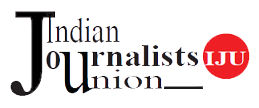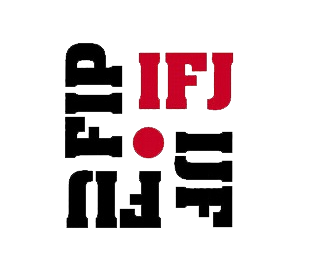- Geetartha pathak
The authoritarian regimes across the world have used national security as an excuse to hide their extra constitutional activities from the scrutiny of the public. It happened in Nazi Germany, Mussolini's Italy and even today the ugly head of fascism is rising with new avatar. United States, the country of first amendment rights, is experiencing the turbulence of autocracy under Donald Trump. Authoritarianism is a pattern of actions, embedded in an organized context, sabotaging accountability to people over whom a political actor exerts control, or their representatives, by disabling their access to information or their voice.
Opaque Court
Judiciary is the vital institution of democracy. However people of India are in dark how it is functioning. When it comes to others, the Supreme Court directs them - even the poll candidates - to disclose their assets but when it comes to judges, it shies away. It is reluctant to bring the higher Judiciary under the purview of the Right to Information Act. The reasons which the Supreme Court has been giving so as to avoid disclosure of such information on the grounds of independence, confidentiality, and possible breach of fiduciary duty. It is difficult to understand how transparency affects judicial independence.
The controversy of recent appointment of two judges Justices Dinesh Maheshwari and Sanjiv Khanna as Supreme Court judges superseding many senior judges has again brought up the issue of lack of transparency in appointment of judges. Last year in a historic press conference Justices Jasti Chelameswar, Ranjan Gogoi, MB Lokur and Kurian Joseph criticised an alleged lack of transparency in the selection of judges to try cases, calling it a cause for "serious concern". Even after one of the 'rebel' judge that addressed the historic press conference becomes Chief Justice of India, the same thing is happening in the judicial courtyard.
Defence Scams and Secrecy
The Supreme Court refused to order an investigation into the Rafale deal, citing the inherent limitations of its power to undertake a judicial review of “sensitive” defence contracts and its lack of expertise in scrutinizing pricing or technical feasibility. It is however difficult to understand how the making the purchase price public is sensitive. The government cannot keep the nation in dark about high value defence deal, particularly its pricing in the name of national security as the country has witnessed many scams in defence acquisitions in the past.
The sector has been kept out of the purview of the Right to Information Act. Disposing of an appeal in July, 2017, the Central Information Commission (CIC) advised the Ministry of Defence (MoD) to ensure probity and accountability in defence procurements. Though the advisory is in the context of the absence of any mechanism to apprise the vendors of the reasons for withdrawal or rejection of their proposals, this is not the only issue that needs to be addressed to bring about transparency and accountability in the system. In fact, it is also not so much about the absence of a mechanism as it is about the tendency to be reticent, uncommunicative and unresponsive with regard to matters relating to defence acquisitions.
Many defence wings reject RTI application saying that the information sought under the RTI is highly classified, which if revealed publicly, could pose a threat to the security of the nation. "We are not compelled to provide the information under 8 (a) of the RTI Act 2005. We are not compelled to reveal the information. We can also deny information on matters related to corruption, human right violation and certain other issues" this was the reply of The Border Roads Development Board to an RTI applicant. The Air Force said in a reply to an RTI application that details of the agreement signed between Indian and French authorities regarding the supply of 36 Rafale aircraft could not be disclosed as they were confidential in nature. The Air Force also said – “Further, the information sought is also held in fiduciary capacity and no larger public interest is served by disclosure of such information”. Is it not of public interest to know why the Modi government has bought the Rafale fighter jets at 41 percent higher rates than the original deal or 36.11 million Euros more per aircraft? In October 2018 Attorney General K K Venugopal, appearing for the Centre in the apex court, said details on the deal cannot be shown to anybody in the interest of national security and other issues involved in the defence procurement process.
Changing Narratives
Now the narrative of the government has been changed. The Defence Ministry clarified after publication of a detailed report in The Hindu on Rafale deal that “All the issues have been answered in detail by the government at various fora and most recently by the Raksha Mantri in an open debate in Parliament.” The Defence Ministry no more thinks the information is classified and therefore it answered all questions related to Rafale deal. People are still in the dark on many aspects of the controversial deal.
Notwithstanding the government's claim that all questions have been answered there are many unanswered question. Why was the benchmark price controversy ignored? How did the deal change from 126 to 36? Why was the lack of sovereign guarantee ignored? Why reiterate official stance despite not discussing pricing? How former French President Hollande's controversial statement was downplayed, why HAL's views were ignored? On the other hand the government misled the Court by saying that the CAG report on the deal was made public and it was examined by the Public Accounts Committee (PAC). The fact is no such CAG report has been made public, nor is it being examined by the PAC.
National security and secrecy are two weapons of the authoritarian regimes. In his book "In the Name of National Security: Hitchcock, Homophobia, and the Political Construction of Gender in Postwar America" Robert J. Corber has shown how politicians set their agenda in the name of national security. Through an analysis of the films of Alfred Hitchcock, combined with new research on the historical context in which these films were produced, he shows how Cold War liberals tried to contain the increasing heterogeneity of American society by linking questions of gender and sexual identity directly to issues of national security, a strategic move that the films of Hitchcock both legitimated and at times undermined. Drawing on psychoanalytic and Marxist theory, Corber looks at such films as Rear Window, Strangers on a Train, and Psycho to show how Hitchcock manipulated viewers' attachments and identifications to foster and reinforce the relationship between homophobia and national security issues.
In our country a section of intellectuals and media are playing and doing the same to build relationship between national security and Islam or security between patriotism, governance and Hindutva.



